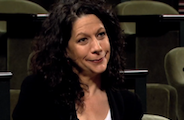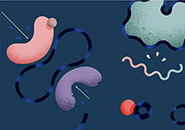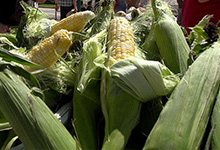
Scientific Discipline
Chemical Biology, Physiology
Related Links
Host Institution
Seoul National University
Current Position
Dr. Oh is an assistant professor in the College of Pharmacy at Seoul National University, South Korea.
Current Research
Discovery of Novel Bioactive Small Molecules Based on Microbial Chemical Biology and Genetic Analysis
Research
Biography
In South Korea, all men must serve in the military, and Dong-Chan Oh knew he would be expected to report for duty shortly after graduating from Seoul National University with bachelor’s and master’s degrees in oceanography and marine chemistry. Initially commissioned as an intelligence officer in the Republic of Korea Navy, he was assigned to an underwater demolition team for a short period and then to the maritime tactical intelligence command and the navy headquarters.
Looking back, Oh said his three years in the military came with an unexpected benefit: ample time to think hard about his future. He knew he wanted to be a scientist but his navy experience made him question whether oceanography was the right choice. It nagged at him that even when one reached a solution in oceanography, it was hard to tell whether that solution was correct.
Oh had done some chemical oceanography and geochemistry in his master’s course, and he appreciated the definitive answers one could obtain in chemistry. When you identify a compound’s structure, he says, there’s just one right answer. After his term in the navy ended, he used the money he earned during military service to move to the University of California, San Diego (UCSD), to pursue his Ph.D. in natural product chemistry.
At age 28, Oh was starting over. “My Ph.D. boss, professor William Fenical, took me even though I didn’t know anything about natural product chemistry at the time,” he said. Fenical’s “bet” paid off. During his time in Fenical’s lab at UCSD, Oh was extremely productive—doing research that led to eight publications in international journals. He discovered 20 bioactive natural compounds in marine bacteria and fungi and showed that they could yield interesting drug candidates.
In 2006, Oh moved to a postdoctoral position in the lab of chemical biology professor Jon Clardy at Harvard Medical School. Still focused on microbes, Oh shifted his attention slightly to study insect–microbe symbiotic systems such as fungus-growing ants, southern pine beetles, and mud dauber wasps. Oh realized that symbiotic associations with bacteria are commonplace and largely regulated by small molecules produced by bacteria. Many of those molecules are likely to be novel compounds—and a treasure trove of natural products that could form the basis of new pharmaceuticals.
“The diversity of microbiota inside 5 million species of insects is huge,” Oh says. “Those systems are not really studied in natural product discovery, so studying insect–microbe symbiosis will be a good strategy for drug discovery.” One promising example from Oh’s research: the discovery of an antifungal compound by analyzing the chemistry of southern pine beetle–symbiotic bacteria.
As an assistant professor of pharmacy at Seoul National University, Oh is now turning his attention to another insect system: dung beetles. Female dung beetles lay their eggs in balls of dung. Oh and his colleagues found that if they remove the females from near the eggs, the brood balls get covered with fungus. He hypothesizes that the beetle is either mechanically removing the fungi or—more interesting to Oh—inoculating the ball with antimicrobial compounds. He plans to use his HHMI support to discover new antibiotic compounds by coupling genomic analysis of microbes with studies of the chemical biology of the compounds used in symbiotic systems.
Oh believes such studies will provide biomedical applications for drug discovery as well as an understanding of the functions of natural small molecules. And he has numbers to back up his argument: 67 percent of antibacterial and antifungal drugs approved by the Food and Drug Administration during the past 25 years are natural products or molecules derived from natural products. However, conventional natural product discovery strategies rely mainly on a random search for bioactive compounds. This approach may not meet current needs. To solve that problem, Oh is developing more efficient chemical biology and genetics-based search techniques to identify compounds.
“The discovery of novel antibiotics or novel anticancer agents from natural sources—that’s true discovery,” Oh says. Each time he identifies and characterizes a compound, it reaffirms that he made the right decision to change the course of his career. “When I determine the structure by nuclear magnetic resonance spectroscopy, it’s really exciting.”
Articles & News
Research Papers
Selected Research Papers



